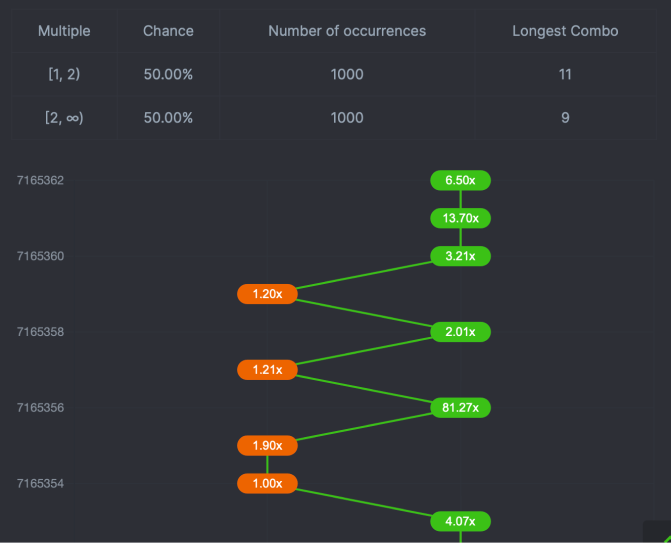Online gambling has surged in popularity over the past decade. Millions of players engage in various digital casino games. Among these, crash games have become particularly thrilling. They promise high rewards based on an increasing multiplier. However, many players have grown skeptical. They notice that big wins are often followed by a series of low results. This challenges the claim of randomness in these games. This article explores why casino game developers assert complete randomness. We will examine the mechanics behind crash games and whether players’ suspicions hold merit.

Understanding Crash Games
Crash games are a type of gambling game. Players place bets on an increasing multiplier. This multiplier starts at 1x and can theoretically climb indefinitely. Players must cash out before the multiplier crashes. If they fail, they lose their stake. The allure of crash games lies in significant returns. Timing the cash-out correctly is crucial. The multiplier’s ascent and subsequent crash are purportedly random. This claim underpins the game’s fairness and appeal.
The Promise of Randomness
Randomness in gambling ensures fairness and unpredictability. It fosters trust among players. Traditional casino games like roulette and blackjack achieve randomness through various mechanisms. Random number generators (RNGs) are common. These are algorithms designed to produce sequences of numbers. They lack any discernible pattern, ensuring independence and unpredictability of outcomes.
Game developers and online casinos emphasize randomness. They reassure players that games are fair and not rigged. This assertion is central to the gambling industry’s integrity. It also ensures regulatory compliance.
The Reality Behind Crash Games
Despite the industry’s insistence on randomness, many players notice patterns suggesting otherwise. High multipliers often follow low winnings and vice versa. This leads to a perception that results are not as random as claimed. These perceived patterns raise questions about the true nature of these games.
The Nature of Algorithms
Crash games rely on algorithms to determine outcomes. These algorithms are theoretically random. However, their implementation can introduce biases. Developers might design the algorithm to manage risk. They ensure the house retains an edge. This might involve adjusting the likelihood of high multipliers after a big win. This mitigates potential losses for the casino.
Statistical Analysis and Player Perception
Analyzing the fairness of crash games requires a statistical approach. Independent testing and audits are crucial. These verify that outcomes are genuinely random and fair. Intermittent high multipliers followed by low ones might be statistical inevitability. This gives the illusion of a non-random pattern.
Gambler’s Fallacy
Players’ perceptions can be influenced by cognitive biases. The gambler’s fallacy is a common bias. It leads individuals to believe future probabilities are altered by past events. In crash games, after a high multiplier, players expect another high result. They might believe the game is due for low results, interpreting normal random variations as patterns.
Regulatory Oversight and Transparency
Online casinos and game providers are subject to regulatory oversight. Independent auditing firms evaluate algorithms and RNGs. They confirm randomness and fairness. These audits dispel doubts and provide transparency to players.
Improving Transparency

Despite regulatory efforts, the industry could benefit from increased transparency. Detailed information on how RNGs work should be provided. Including third-party audit results could help alleviate player concerns. Enhanced transparency demonstrates a commitment to fairness. It bolsters the credibility of online casinos. Implementing a “provably fair” mechanism can further enhance trust. This mechanism allows players to verify each game’s fairness independently. By using cryptographic algorithms, casinos can ensure that game outcomes are fair and tamper-proof.
Trusted Casinos
Until the industry ensures transparency, players should be cautious. Only trust casinos known for their fairness and transparency. Consider casinos listed below. They have demonstrated commitment to these principles.
Conclusion
The promise of randomness is fundamental to casino games. This includes crash games. Perceived patterns suggest algorithms might introduce biases. These biases can be intentional or not. Cognitive biases like the gambler’s fallacy explain some perceptions. However, the potential for algorithmic manipulation cannot be dismissed.
For the industry to maintain trust, it must prioritize transparency. Rigorous independent audits are necessary. By doing so, online casinos assure players of genuine randomness. Players should consider trusting only casinos listed in this article. These casinos have demonstrated commitment to fairness and transparency. This commitment ensures the thrill of crash games is rooted in true randomness.
















